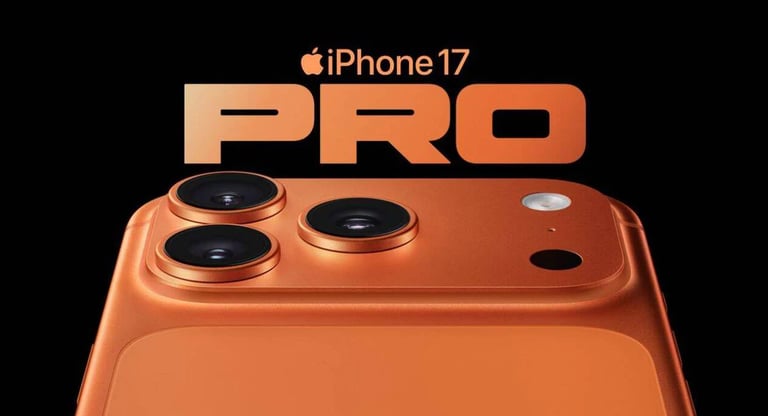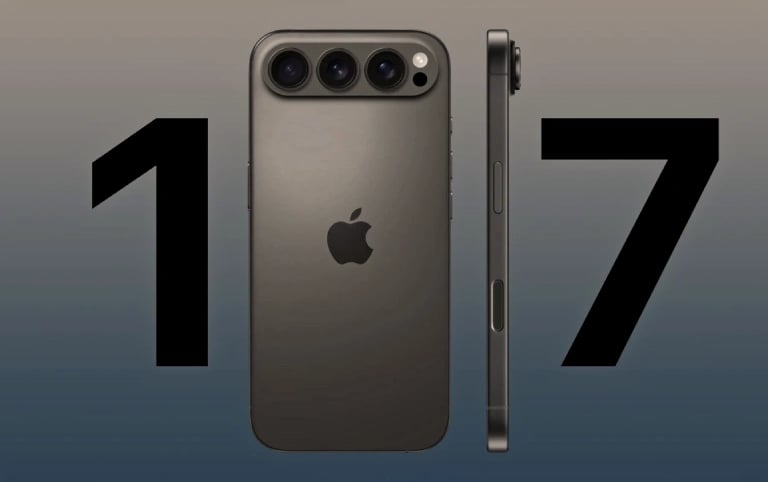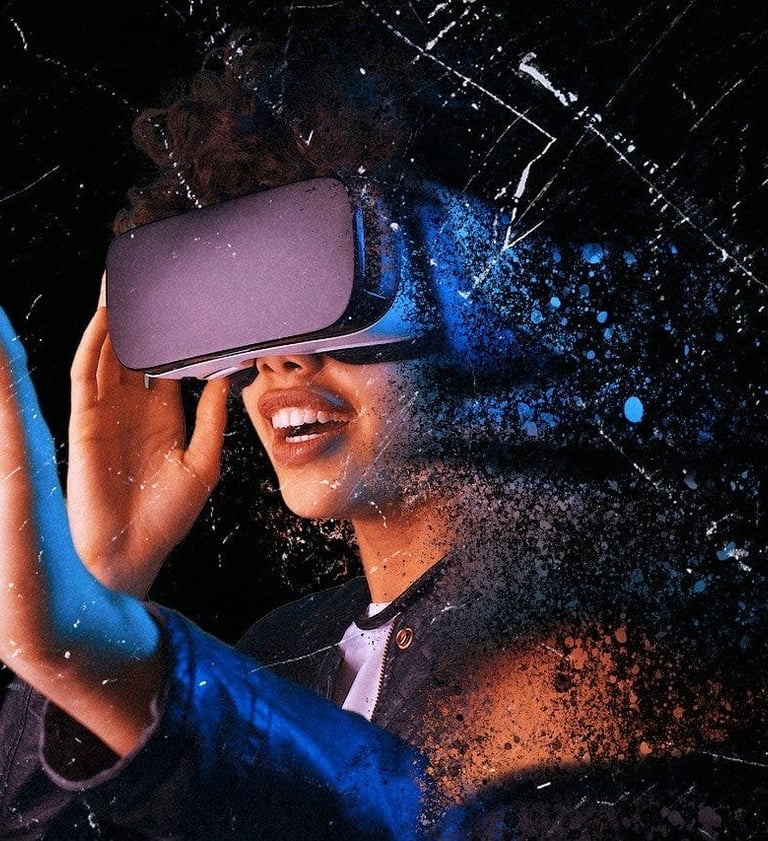iPhone 17: Pros and Cons
The iPhone 17 is Apple’s latest non-Pro model (as of September 2025), offering many upgrades over past models. But like any device, it has strengths and weaknesses. Here’s a breakdown to help you decide if it’s right for you.
👍 Advantages (Pros)
Improved Display Quality
Super Retina XDR OLED display at 6.3-inch with ProMotion adaptive refresh rate up to 120Hz. This means smoother scrolling and better motion performance. Apple+3Apple+3The Times of India+3
Very bright outdoors, with peak brightness up to ~ 3,000 nits. The Times of India+2Apple+2
Always-on display feature and Ceramic Shield 2 front glass offering better scratch resistance. Apple+1
Strong Camera System
Dual 48MP rear “Dual Fusion” cameras: a main camera plus ultra-wide. Better resolution, especially in ultra-wide shots. Apple+2The Times of India+2
Upgraded front (selfie) camera: 18MP “Center Stage” with a new square sensor, better framing, good for video calls and selfies. Apple+1
Features like “Dual Capture” allowing simultaneous front & rear video, and improved stabilization for more professional video quality. Apple+1
Power & Performance
New Apple A19 chip (in standard model) promises faster CPU and better GPU performance. Macworld+1
Good battery life: up to 30 hours of video playback in ideal conditions. Macworld+1
Support for fast charging: up to 50% charge in ~20 minutes with a 40W adapter. The Times of India+3Apple+3Macworld+3
Modern Connectivity and Features
USB-C port (as opposed to Lightning) for charging & data. Apple+1
Wi-Fi 7, Bluetooth 6, new networking chip (N1), better wireless tech. The Verge+2Apple+2
IP68 rating (water & dust resistance up to 6 meters for 30 mins). Apple+1
Design & Durability
Software & Intelligence
Runs iOS 26 out of the box, with new features like Live Translation, cleaner UI, and smarter photo/video tools. Apple+2Axios+2
Apple “Intelligence” integrated for promise of better UX. Apple+1
👎 Disadvantages (Cons)
Price
The base model starts at a higher price (especially with 256 GB base storage). For many users, this is a not-small investment. The Verge+2MacRumors+2
Also, accessories like fast chargers (40W) are sold separately. Not all are included in the box. Apple+1
USB-C Data Speed Limitations
While charging and connectivity use USB-C, data speed is USB 2.0 (≈ 480 Mbps), which is much slower than USB-3 or higher. For transferring large files or video editing, this could be a bottleneck. Apple+1
Incremental Upgrades
Some improvements are evolutionary rather than revolutionary. For example, upgrades in camera resolution, brightness, etc., but some users might expect more dramatic changes.
If you have a recent iPhone (like iPhone 16), the difference might not be worth upgrading immediately for some features.
Battery & Charging Limitations
Although there is improvement, the size of the battery hasn’t jumped dramatically in the standard model. Under heavy usage (gaming, video, 5G), the battery may still drain noticeably.
Wireless charging speeds are moderate (MagSafe / Qi2 up to ≈25W). Not super high compared to competitors. Apple
Feature Exclusivity to Higher Models
Some of the more advanced features (e.g. better camera zoom, extra RAM, etc.) are reserved for the Pro or Pro Max versions. If you’re buying the non-Pro model, you may miss out. MacRumors+2WIRED+2
Potential Size & Handling
The 6.3-inch size is good, but for those who prefer smaller phones, even this size may be large.
Weight is ~ 177 grams, which is reasonable, but with case and accessories might feel heavier. Apple
Future Proofing
Though it’s well equipped, some users could be concerned about how long full software support / premium features will remain vs Pro versions.
✅ Conclusion
The iPhone 17 is a strong option if you want modern display tech, high-quality cameras, improved durability, and the latest Apple software / connectivity. It’s especially appealing for those upgrading from older iPhones (e.g. iPhone 12-15).






Back to School: A Fresh Start for Students
The beginning of the school year is more than just returning to classrooms; it is a new opportunity for growth, discovery, and connection. After the long summer break, students come back with renewed energy, eager to meet their friends and teachers, and ready to face new academic challenges.
Back to school is also a chance to set goals, build positive habits, and develop skills that will last a lifetime. Whether it is improving in a favorite subject, joining school activities, or exploring new interests, this period opens the door to endless possibilities.
Although adjusting to routines like waking up early or managing homework can be difficult at first, the school environment plays a vital role in shaping confidence, creativity, and responsibility. With the right mindset, every student can turn this new beginning into a successful and rewarding journey.


Tesla: Leading the Future of Electric Cars
Tesla, founded in 2003 by engineers including Elon Musk, is one of the world’s most influential companies in the electric vehicle (EV) industry. Its mission is “to accelerate the world’s transition to sustainable energy.”
Key Achievements
Electric Vehicles: Tesla produces some of the most popular EVs, such as the Model S, Model 3, Model X, and Model Y.
Innovation: The company introduced advanced autopilot features, over-the-air software updates, and industry-leading battery technology.
Energy Solutions: Beyond cars, Tesla also develops solar panels, energy storage (Powerwall, Megapack), and charging networks worldwide.
Advantages
Environmentally friendly cars with zero emissions.
Strong performance and long battery ranges compared to competitors.
Continuous innovation and bold vision for the future of transport.
Challenges
High prices compared to traditional cars.
Production delays and supply chain issues.
Increasing competition from other EV makers.
Conclusion
Tesla remains a pioneer in sustainable transport, shaping the automotive industry with cutting-edge technology and ambitious goals. Despite challenges, it continues to push boundaries in clean energy and mobility


🌐 The Metaverse in 2025: Redefining Digital Life
Introduction
Once a buzzword, the Metaverse is now evolving into a tangible reality. Blending virtual reality (VR), augmented reality (AR), blockchain, and artificial intelligence, it promises a new way to live, work, and connect. In 2025, the Metaverse is more than just a futuristic concept — it’s becoming a digital extension of our everyday world.
🔮 What is the Metaverse?
The Metaverse can be described as a shared digital universe where people interact using avatars, immersive environments, and real-time technologies. Unlike traditional internet browsing, the Metaverse allows users to experience digital content as if they were physically present inside it.
🚀 Key Applications in 2025
1. Education & Training
Virtual classrooms and labs are making learning more interactive. From medical simulations to historical recreations, the Metaverse enables students to “learn by doing.”
2. Work & Collaboration
Companies now host meetings in virtual offices, where avatars interact in real-time. This boosts remote collaboration, creativity, and global teamwork.
3. Entertainment & Gaming
The gaming industry has been a pioneer of the Metaverse. Today, concerts, sports events, and interactive storytelling also take place in immersive 3D environments.
4. Retail & Shopping
Virtual stores allow customers to try on clothes using avatars or explore 3D showrooms before making purchases. This creates a hybrid between e-commerce and in-person shopping.
5. Healthcare & Therapy
From VR-based physical therapy to mental health treatments, the Metaverse offers safe, controlled, and engaging ways to support patients.
⚡ Challenges & Concerns
Privacy & Security: More data means higher risks of hacking and surveillance.
Digital Inequality: High costs of devices may exclude many communities.
Mental Health: Spending too much time in virtual spaces can blur the line between real and digital lives.
Regulation & Ownership: Who owns virtual land, assets, or even your avatar’s identity?
🌍 The Future of the Metaverse
By 2030, the Metaverse is expected to become a multi-trillion-dollar economy. With advances in wearable tech, brain-computer interfaces, and AI-driven environments, it will shape how people learn, socialize, and create value. But its success depends on building a balance between innovation, ethics, and accessibility.
Conclusion
The Metaverse is not just science fiction anymore. In 2025, it is redefining what it means to live in a digital-first society. Whether it’s for learning, working, shopping, or simply connecting with others, the Metaverse represents the next chapter of human interaction — one where imagination meets technology.


Modern Technology
Modern technology has changed the way we live, work, and communicate. Today, people can connect with others around the world in seconds using smartphones and the internet. Technology also helps in education, where students can learn online and access information (easily) from many sources.
In healthcare, modern machines and digital systems help doctors find diseases faster and treat patients more effectively. At the same time, technology is used in transportation, entertainment, and even in our homes through smart devices.
However, while technology makes life easier, it is important to use it wisely. Too much screen time and overuse of devices can affect our health and social lives. When used in a balanced way, modern technology is a powerful tool that improves our world.


FAQs
What tutorials do you offer?
We offer tutorials on software development, web solutions, and tools for developers and startups.
How can I access articles?
You can access our articles directly on our website under the 'Articles' section for valuable insights.
What tools are available?
We provide various tools tailored for developers and startups to enhance productivity and streamline their projects effectively.
Is there a subscription fee?
No, all our resources are free to access for everyone interested in technology.
Can I contribute content?
Yes, we welcome contributions from developers and writers who want to share their knowledge with our community.
Where can I find support?
Support can be found through our contact page or by reaching out via our social media channels for assistance.

Mercitalks has transformed my coding skills with their insightful tutorials and practical tools.
Alex T.

The resources provided by Mercitalks are invaluable for any developer looking to improve.
Jamie L.
